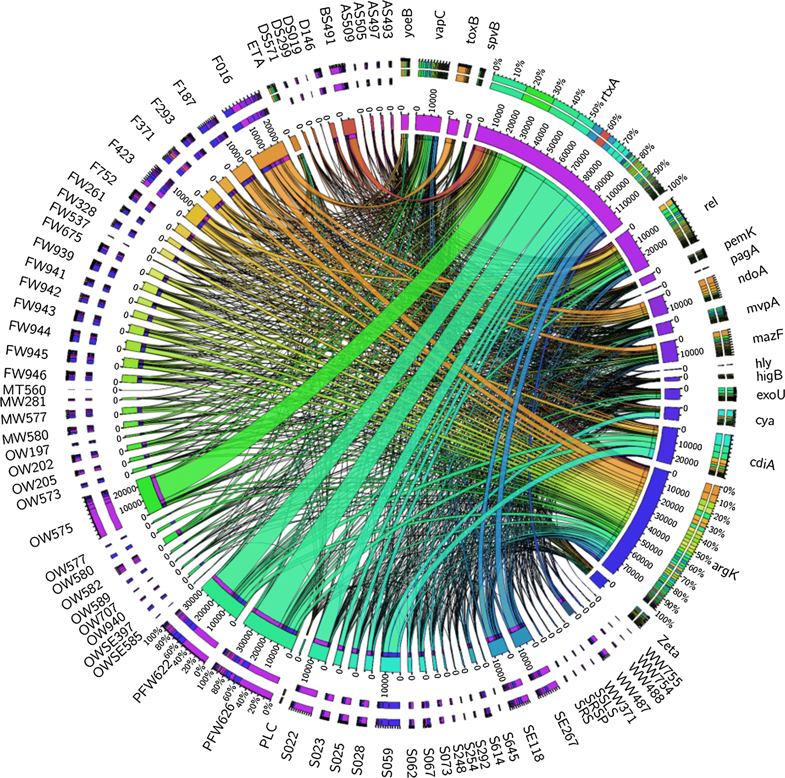
Human pathogens are widespread in the environment, and examination of pathogen-enriched environments in a rapid and high-throughput fashion is important for development of pathogen-risk precautionary measures. Conventionally, examination of pathogen abundance in environmental DNA can be realized by metagenomic tools through detecting 16S marker genes or whole-genome-assembly.
Recently, Dr. LI Xiaofang from the Centre for Agricultural Resources Research, Institute of Genetics and Developmental Biology of the Chinese Academy of Sciences developed a Local BLASTP procedure for metagenomic screening of pathogens in the environment, using a toxin-centred database.
The specificity of the Local BLASTP method was tested with known and unknown toxin sequences. Bioinformatic analysis and Canonical Correspondence Analyses were also conducted to examine whether the toxins included in the database were taxonomically associated.
A total of 69 microbiomes derived from ocean water, freshwater, soils, feces, and wastewater were screened using the Local BLASTP procedure.
Results indicated that most toxins were phylum-specific but not genus-specific, and almost all of the toxins were associated with the phyla of Proteobacteria, Nitrospirae and Firmicutes.
Local BLASTP screening of the global microbiomes showed that pore-forming RTX toxin, ornithine carbamoyltransferase ArgK, and RNA interferase Rel were most prevalent globally in terms of relative abundance, while polluted water and feces samples were the most pathogen-enriched.
This study was funded by the National Natural Science Foundation of China and Hebei Science Fund for Distinguished Young Scholars.
The results were published in Environmental Sciences Europe.

Circular visualization of the toxin abundance in the microbiomes selected from locations worldwide (Image by LI Xiaofang)

86-10-68597521 (day)
86-10-68597289 (night)

52 Sanlihe Rd., Xicheng District,
Beijing, China (100864)

